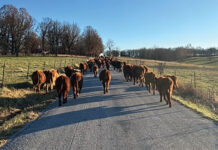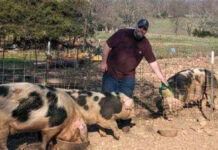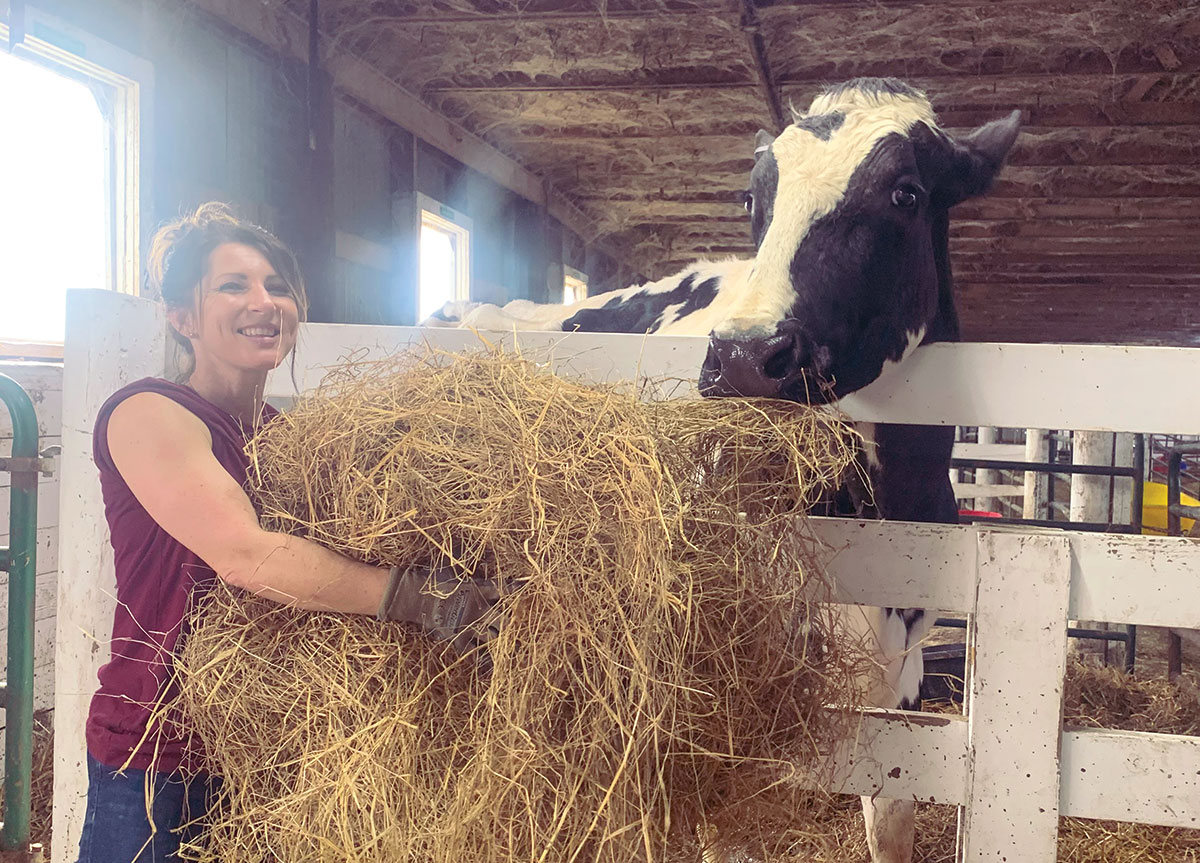 The Brooks family owns a farm in Webster County near Marshfield, Mo. They also own and operate Brooks Gas Company.
The Brooks family owns a farm in Webster County near Marshfield, Mo. They also own and operate Brooks Gas Company.
Sitting on the back deck of the farmhouse, John Brooks said, “My little brother, Joe, makes it possible for me to come out here and enjoy myself.” Joe has taken on the management of the gas company and John manages the farm. Although their father, Bill, passed away several years ago, their mother, Mary Ruth Brooks, is still very much involved in the gas company. John also works there as a serviceman.
There are about 150 head of cattle on the Brooks farm and John said, “We have every color there is. That came into being because my dad bought bulls from whoever was buying propane from him. So we had a lot of different variety and we’ve just never phased it out. We have Longhorns, Angus, Herefords, some Limousin, just every color.”
John explained, “Essentially, we kept heifers that rolled over and just never did any intense farming effort; not selective animal husbandry. Whatever cows produced good calves were retained regardless of their color, though we have become more selective on our bull use. We no longer keep a Longhorn bull or have Limousin bulls. The cows have just stayed mixed.”
A huge deciding factor, when it comes to which cows to keep, is disposition. John stated, “She’s got to be congenial. She has to be docile, easy to handle. I will sell an attitude immediately.”
John suffered an injury last spring, but said it could have been much worse. He said, “It’s common for cattle to kick a gate when you’re crowding them into the tub. I just never had one kick a homerun before and it broke my teeth. It had nothing to do with that cow. She’s still here. When you start crowding them, they kick. But I went down in the lot and the cattle just stood there calmly looking at me. They were not excited. Had I had spooky, attitude cattle, I could have gotten further injured.”
The biggest problem facing today’s farmers, in John’s opinion, is, “The high cost of energy, of course.” He added, “Diesel is a major burden and without that energy you can’t put your hay crop in, can’t get your cattle to market, keep your pastures clipped or weeds under control. Hand-in-hand with diesel is the high cost of fertilizer.”
While fertilizer is “an enormous expense,” John stated, “It is absolutely critical to production in southwest Missouri. This old rough ground will produce whatever you put in it. Should you choose not to fertilize for a couple of years, you’ll learn the hard way.”
He still uses conventional fertilizer and has not tried other methods. John also stressed the importance of knowing your soil. “It’s absolutely critical to have correct soil tests and bring your ground up to the necessary test in order to get the efficiency out of your fertilizer.”
In the late evening, when he finishes his work at the gas company, John spends a couple of hours at the farm enjoying the fruits of his labor.







